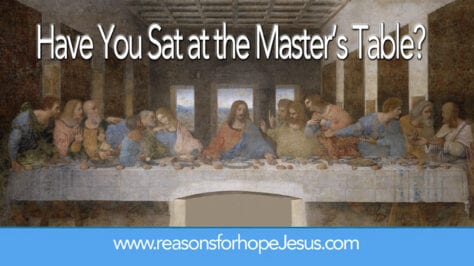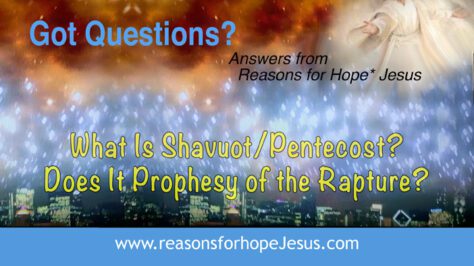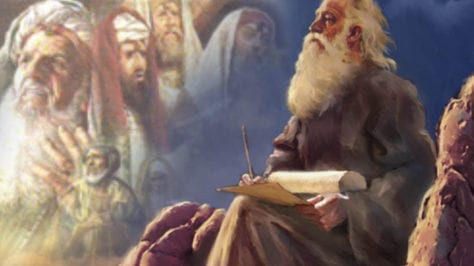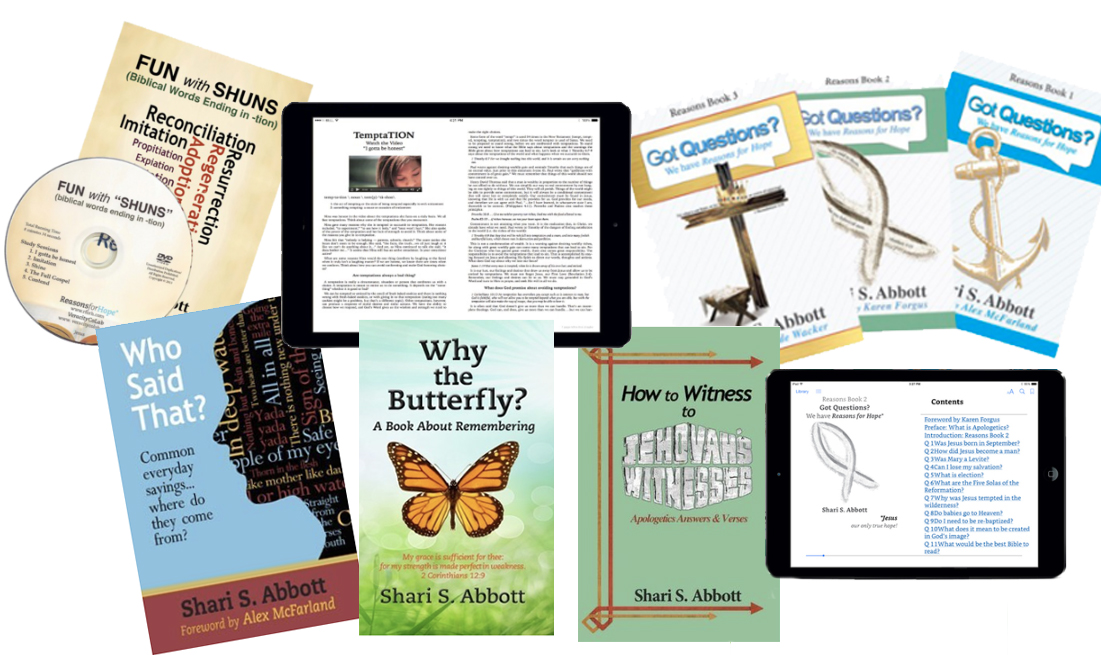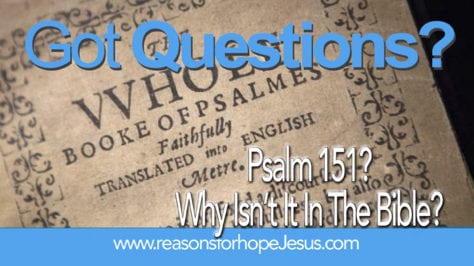
Psalm 151? You won’t find it in most Bibles. Most people don’t know it exists. Who wrote this psalm? What’s it all about? Should it be included in the Bible?
The Book of Psalms, in the Hebrew Scriptures and the Old Testament of the Christian Bible, contains 150 psalms. However, there are other psalms (10) that have survived throughout the ages, including this one. While you won’t find Psalm 151 in the Masoretic text (Hebrew manuscripts), it is found in most copies of the Septuagint (the LXX) with a title that indicates it was written by David and is supernumerary (extra; beyond the standard or prescribed amount or number):
“This Psalm is ascribed to David and is outside the number. When he slew Goliath in single combat”
Although no number is attached to the psalm in the Greek manuscript, it is commonly called Psalm 151. The psalm speaks of David’s victory over the Philistine giant, Goliath, and of his having been selected by God to rule over Israel as king. It is autobiographical (dealing with the writer’s own life) and tells of David’s stature, family position, work, selection by God to be king, and his victory over Goliath.
Manuscript Evidence
The only manuscript evidence for this psalm, prior to the 20th century, was the Septuagint and translations that derived from the Septuagint. In 1947, the psalm and others were found in one of the Dead Sea Scrolls (Hebrew texts) that were discovered in Qumran (a village situated about twenty miles east of Jerusalem on the northwest shore of the Dead Sea).
The text found in the Dead Sea Scrolls differs from that found in the Septuagint translation (both provided below). In the Hebrew, the psalm is split into two separate texts. In the Septuagint it is one, condensed, and shorter text.
Should Psalm 151 be Included in the Bible?
It’s not surprising that Psalm 151 is not canonical (officially part of the sacred texts) in Protestant or Catholic Bibles. When the Bible was canonized in the 5th century, no Hebrew texts contained this psalm. Not being found in the traditional Masoretic Hebrew text, and only in a Greek translation, would have disqualified it from being considered for inclusion in the canonical Book of Psalms.
While the Septuagint is widely used, it should be understood that it does not have the authority of Hebrew manuscripts. Many question the accuracy of the Septuagint and consider some, or all of it, to be apocryphal (biblical or related writings not forming part of the accepted canon of Scripture). Traditional Judaism considers Psalm 151 to be apocryphal and so also did the translators of the Septuagint who indicated such by their marking it as “not of the number.”
So, the answer to our question is: “No! Psalm 151 should not be included in our Bibles. Why? Because our Bibles only contain Scripture that has been deemed officially part of the ancient sacred texts, which are inspired by God.
It should be noted that the New Revised Standard Version (NRSV), and the Orthodox Study Bible (a translation by Greek Orthodox Christian theologians) do include Psalm 151. But even these two translations do not include it as canonized Scripture and both include the attribution that indicates it is “outside the number.”
In Conclusion
We can enjoy the words of this psalm and the teaching it offers. It does not contradict that which has been inspired by God and can be beneficial in our reflection on the life and faith of King David and his service to God. However, do not consider the words of this psalm as inspired by God. There is no authoritative proof of the authenticity of the words or the authorship.
Psalm 151 (as translated in the NRSV)
This psalm is ascribed to David as his own composition (though it is outside the number),
after he had fought in single combat with Goliath.
1 I was small among my brothers,
and the youngest in my father’s house;
I tended my father’s sheep.
2 My hands made a harp;
my fingers fashioned a lyre.
3 And who will tell my Lord?
The Lord himself; it is he who hears.[b]
4 It was he who sent his messenger[c]
and took me from my father’s sheep,
and anointed me with his anointing oil.
5 My brothers were handsome and tall,
but the Lord was not pleased with them.
6 I went out to meet the Philistine,[d]
and he cursed me by his idols.
7 But I drew his own sword;
I beheaded him, and took away disgrace
from the people of Israel.
Footnotes:
a Psalm 151 1:1 Other ancient authorities add of the one hundred fifty (psalms)
b Psalm 151 1:3 Other ancient authorities add everything; others add me; others read who will hear me
c Psalm 151 1:4 Or angel
d Psalm 151 1:6 Or foreigner
New Revised Standard Version (NRSV)
New Revised Standard Version Bible, copyright © 1989 the Division of Christian Education of the National Council of the Churches of Christ in the United States of America. Used by permission. All rights reserved
Variation in the Dead Sea Scrolls
Psalm 151 (A and B translated from Dead Sea Scroll 11QPsa)
(Psalm 151A)
Hallelujah! A Psalm of David, son of Jesse.
1 I was smaller than my brothers,
and the youngest of my father’s sons,
so he made me shepherd of his flock
and ruler over his little goats.
2 My hands fashioned a reed pipe,
and my fingers a lyre;
and so I gave glory to the LORD.
I said in my mind:
3 “The mountains cannot testify to him,
nor can the hills proclaim—
lift up my words, you trees,
and my compositions, you sheep
4 For who can announce, and who can declare,
and who can recount my deeds?
The Lord of everything has seen,
the God of everything has heard, and he has paid attention.
5 He sent his prophet to anoint me,
Samuel to raise me up.
My brothers went out to meet him,
handsome of figure, handsome in appearance.
6 Although they were tall of stature
and handsome because of their hair,
the LORD God did not choose them.
7 But he sent and fetched me from behind the flock
and anointed me with the holy oil,
and he made me prince of his people
and ruler over the sons of his covenant.
(Psalm 151B)
At the beginning of po[we]r for [Dav]id,
after God’s prophet had anointed him.
1 Then I s[a]w the Philistine,
throwing out taunts from the r[anks of the enemy].
2 …I…the…
Footnote:
Bracketed information not found in the scroll.
<*}}}><
*******
Jesus is the Reason this Ministry Exists
At Reasons for Hope* Jesus, we are committed to equipping, encouraging, and empowering Christians to know Jesus better, love Him more, and share their faith. We also reach the lost through our Salvation Page.
With your support, we can continue to provide valuable resources and engaging content. Please join us in our mission by donating today. Your generous contribution helps us expand our outreach of sharing biblical truths and hope in Jesus. Thank you for your kindness and for being an integral part of our mission.
*******
*******
***A Hidden Message in Psalm 23?***
Hidden in the six verses of Psalm 23 are 11 names for Jesus. When you subscribe to our newsletter, we’ll send you The Names of God in Psalm 23 PDF that reveals all 11 names and Scripture verses of comfort and hope (link will be sent in your confirmation email).
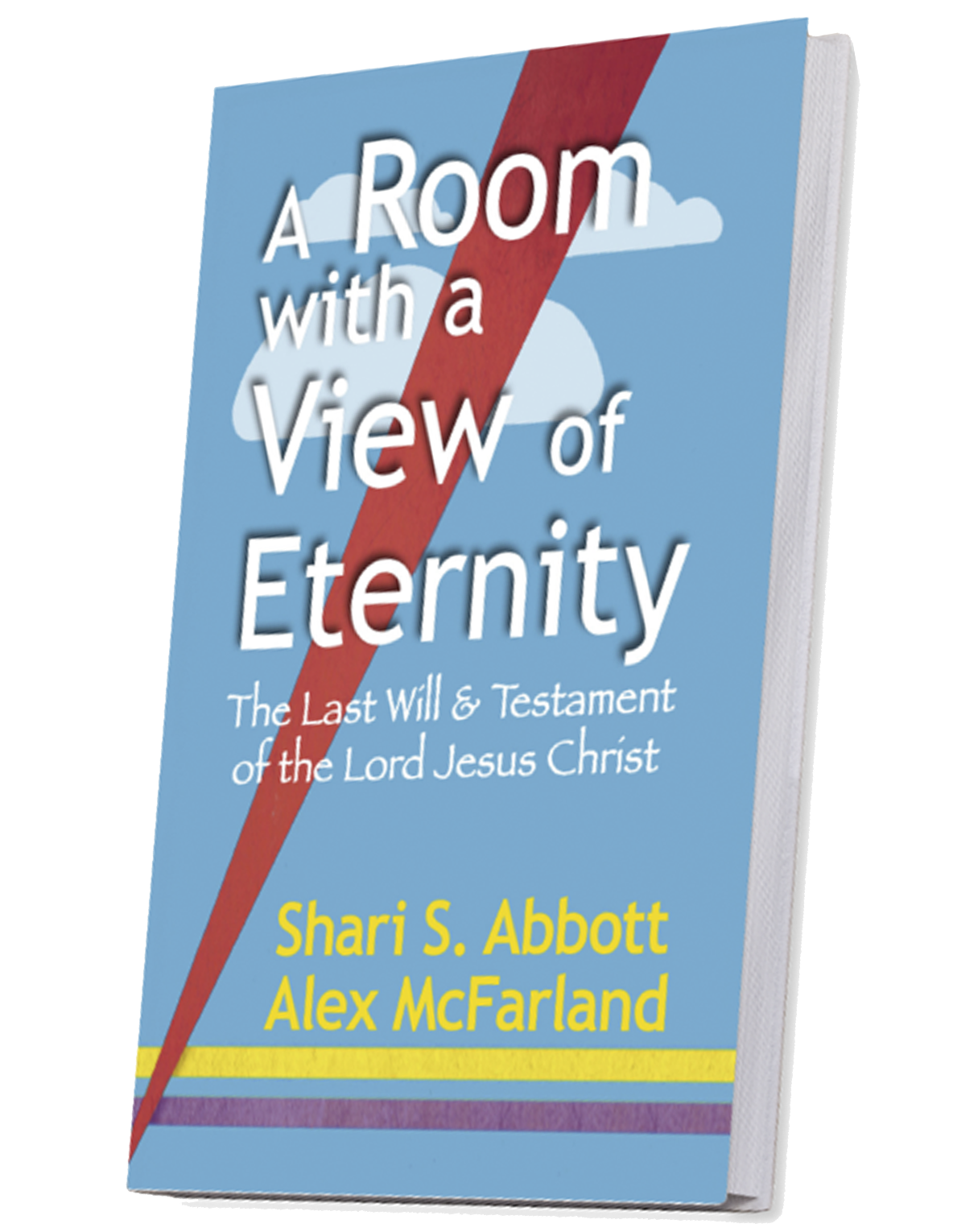 A Room with a View of Eternity—The Last Will & Testament of Jesus Christ Take a seat at the Master's table. Learn about the riches He gives to all who are His. This book will bless and encourage you, give you hope, and help you live in the joy of your salvation and the riches of Christ that are yours.
A Room with a View of Eternity—The Last Will & Testament of Jesus Christ Take a seat at the Master's table. Learn about the riches He gives to all who are His. This book will bless and encourage you, give you hope, and help you live in the joy of your salvation and the riches of Christ that are yours.

The Top Ten Got Questions? in 2023
- The Meaning of NUMBERS in the Bible?
- Was Jesus CRUCIFIED on Wednesday, Thursday, or Friday?
- How was Jesus Like a Worm? What’s the CRIMSON (OR SCARLET) WORM in Psalm 22?
- How are the Shepherd’s ROD and STAFF Different?
- How long did JOB SUFFER?
- What is the Significance of the Wise Men's THREE GIFTS? And were they kings?
- Did The Wise Men Arrive 12 DAYS AFTER JESUS’ BIRTH? Or Was It Much Later?
- Jesus’ Last Days TIMELINE: the Cross and the Resurrection
- The Meaning of COLORS in the Bible?
- Did Jesus Fight Satan to Take Back the KEYS of Death and Hell?
There is much to be learned from those who have gone before us in the faith. Check out our Cloud of Witnesses category that features the words of departed saints who are now with the Lord in glory. Their words equip and encourage us even to this day. Take a few minutes to hear...
- ONLY ONE LIFE, Twill Soon Be Past – by C.T. Studd (1860 – 1931)
- “The Love of God is Greater Far” by Frederick M. Lehman (1917)
- Prayers from Billy Graham
- Who Was Robert Robinson? What’s the Story Behind “Come Thou Fount”
- “Immanuel” — A Poem by Charles Spurgeon (1834-1892)
- Who Am I? A Poem by Deitrich Bonhoeffer (1905-1945)
- Understanding the Everlasting Arms of God, by J.R. Miller (1840–1912)
- 24 Reasons Why I Love America, by John Wayne (1907-1979)
- Give Me Perpetual Broken-heartedness (from The Valley of Vision)
- Abide with Me, by James Smith, 1859
This remains one of our most popular pages viewed.![]()

TOP TEN Videos from Reasons for Hope* Jesus
- Memorial Day BAGPIPES TRIBUTE: Amazing Grace
- RISE AND SHINE and Give God the Glory, Glory!
- WERE YOU THERE When They Crucified My Lord?
- PAUL HARVEY: THE BIRDCAGE
- PRESIDENT RONALD REAGAN: A SOLDIER'S PLEDGE
- Hark! the Herald Angels Sing -- CHARLIE BROWN Christmas
- JOHN WAYNE ~ WHY I LOVE AMERICA
- Jimmy Stewart - Nativity Scene Prayer: Mr. Krueger's Christmas
- THE LEGEND OF THE CANDY CANE - A Christmas Story to Share
- Not by Might, Not by Power, But BY MY SPIRIT says the Lord (Zechariah 4:6)
*****************







